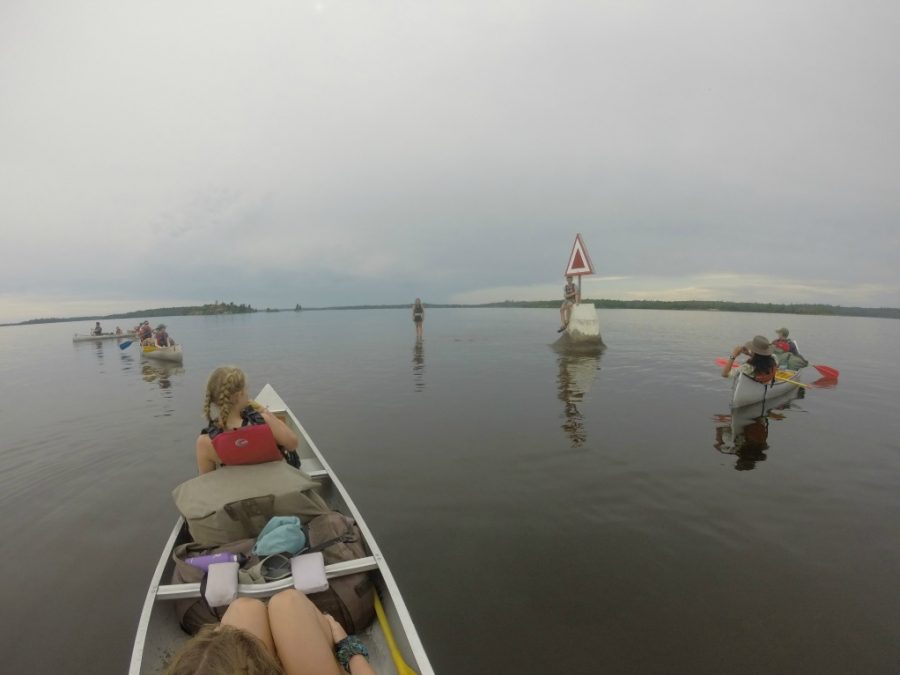Field Based Science
photo courtesy of Ben Gustafson
August 12, 2016
Field Based Science, otherwise known as FBS, is no average field trip. For starters, students travel to a different country (Canada), and are required to survive for six days in the wilderness with only the things they can carry on their backs. Although several teachers from the Edina High School Science Department organize the trip, without the help of a non profit organization called Laketrails, FBS would not be possible. Laketrails is a camp situated on Oak Island in Lake of the Woods, Canada, which provides extremely experienced guides, all the food and equipment needed for camping, and a beautiful island to serve as base camp. The Laketrails base camp consists of a dining hall, a recreation room, several cabins, and two beaches. Upon arrival at base camp, campers’ cell phones are taken and stored until the end of the week leaving them to be able to swim, fish, throw frisbees, play ping pong, or just hang out without the distractions of home. Campers aren’t even allowed to know the time of day at any point during the trip allowing them to literally live in the moment. The following day at base camp, campers get busy learning how to paddle a canoe correctly, how to carry a canoe on one’s shoulders, how to differentiate between edible and nonedible plants, and how to fit a week’s worth of clothes for two people into a pack smaller than an average backpack.
In addition, Field Based Science provides campers with a rare opportunity to challenge themselves while on summer break. “I love the mental challenge of leaving my comfort zone. From going to the bathroom in the woods to portaging a canoe, you are guaranteed to push yourself when on FBS,” said Teacher’s Assistant Eva Anderson. The campers also face grueling, full day paddling trips, portaging packs with a week’s worth of supplies inside, enduring swarms of mosquitoes, waiting out massive thunderstorms in a tent, and putting up with the body odor that occurs when campers are unable to shower for over six days. Further, by being assigned to a group rather than choosing their own, campers are able to expand their social circle. “I love meeting and getting to know completely new people. It’s an opportunity that doesn’t come very often because people become so comfortable with the friends they have at school,” said Anderson.
In addition, by surrounding students with nature for over a week, FBS aims to give students a “whole new understanding and appreciation for the great outdoors,” senior Teacher’s Assistant Allison Risser commented. There is no end to the learning that takes place while in the wilderness. “You get to try new things, like carrying canoes or starting fires! There’s also so much beauty around you at all times; one year my group got to see the Northern Lights!” said Risser.
The impact of FBS on EHS students cannot be understated. “Going on FBS trips for two years now has influenced where I think about going to college and what I want to get involved in at college because I want the outdoors to continue being a part of my life. FBS has also taught me a lot about what’s really necessary in life to live and be happy. I would recommend FBS to every EHS student because it’s an incredible opportunity that the school provides to escape the comfort of home and discover what it’s like to truly be outdoors,” said Anderson.


